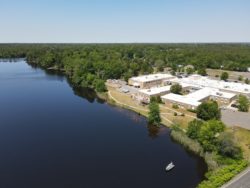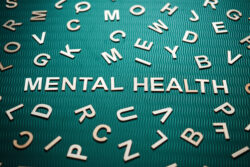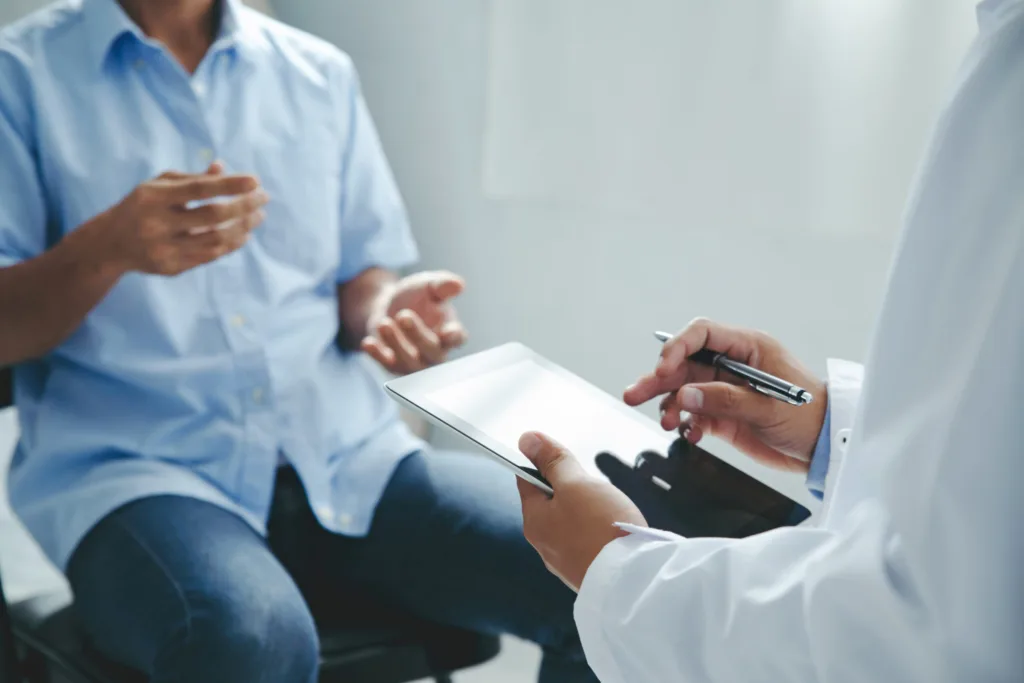Are There Programs for Human Trafficking Survivors?

Anyone who is a victim of human trafficking does not come out of the experience without suffering its effects. Mental and physical health effects loom long after a victim has been rescued, making it absolutely crucial for treatment programs to offer long-term assistance for the most effective recovery.
What are the effects of human trafficking?
The effects of human trafficking are long-lasting and dramatic, including physical and mental health complications. Because victims are often young and vulnerable, they are forced to experience these negative effects at a very young age.
Some of these effects include:
- Suffering from undiagnosed or untreated disease, including diabetes, cancer and dental disease
- Substance abuse or addiction either as a result of being forced by their trafficker or as a means of coping with the mental trauma
- Physical signs of abuse and misuse, including bruising, pelvic pain, rectal trauma and urinary infection
- Infections, infertility or other mutilations from suffering at the hands of the trafficker’s appointed “medical professional”
- Malnourishment and stunted growth
- Poor mental development as a result of being denied proper education
- Depression, anxiety, intense fear and/or other symptoms of post-traumatic stress disorder
- Mistrust and difficulty building a relationship
- Memory loss
- Isolation
This list is not all-inclusive, and because of this, it is more important than anything to provide these survivors with the help and support needed for recovery.
How can I help stop human trafficking?
You can be an active participant in the stopping and prevention of human trafficking by knowing the signs of trafficking and the resources available for victims.
The signs of human trafficking to look out for include:
- A child or teen employed in commercial sex acts
- A child who suddenly stops attending school
- An individual who does not have freedom of movement and seems to be unable to leave their home, or needs to always get permission from a superior before making decisions
- A man, woman or child who is always accompanied by this superior from whom they repeatedly take cues from
- Any man, woman or child lacking basic human necessities, including proper food, water, hygiene and sleep, or someone who lacks their own personal possessions
- A sudden, uncharacteristic change in behavior, including sudden isolation, anxiety, depression and fear
- A highly fearful, timid or quiet individual who displays additional signs of abuse, including bruising and confusion/signs of mental abuse
When you know the signs, you are able to not only intervene by getting the right authorities involved, but you can point the survivors in the right direction of resources they need to begin seeking freedom and recovery.
Programs & resources for victims and survivors
Victims who are in the midst of being trafficked often do not reach out for help due to the strict measures their traffickers put on them. Due to fear, anxiety and possible threats, even those who want to be free do not feel the ability to take action.
Thankfully, a number of resources are available for those who have been trafficked and for their loved ones, or for those who have identified a situation of human trafficking and require support or need a hotline to reach out to.
The National Human Trafficking Hotline offers a tip line for anyone who is involved in, or has witnessed, a situation of trafficking. They provide the ability for individuals to call, text or online chat with someone who can help, and provide additional resources and help for those who are rescued from these situations.
The Office for Victims of Crime is a great resource for those who would like to apply for compensation for crime, for a list of programs in your local area for support and recovery, and for contact numbers for additional helplines. This website also provides a searchable database where you can look up crimes by name, including human trafficking, in order to locate services in your area.
The National Center for Missing and Exploited Children leads “the fight to protect children, creating vital resources for them and the people who keep them safe.” They provide support for “victims, families, law enforcement, social service agencies, mental health agencies and others” who have in some way been involved with missing or exploited children.
The Coalition Against Trafficking in Women provides information, including helpful blogs, news articles and podcasts, for those who wish to learn more and do more for those who have been trafficked. This global corporation takes into account the influence victims have in making a change and utilizes their stories and experiences as a way of fostering hope for change.
Human Trafficking Victim Assistance Program
If you are looking for ways to help stop human trafficking, are in need of resources for yourself as a survivor, or are a family member of someone who has been exploited, we are here to help.
Contact Pyramid Healthcare to begin your journey to freedom and recovery today by calling 888-694-9996 or contacting us online.
Anyone who is a victim of human trafficking does not come out of the experience without suffering its effects. Mental and physical health effects loom long after a victim has been rescued, making it absolutely crucial for treatment programs to offer long-term assistance for the most effective recovery.
What are the effects of human trafficking?
The effects of human trafficking are long-lasting and dramatic, including physical and mental health complications. Because victims are often young and vulnerable, they are forced to experience these negative effects at a very young age.
Some of these effects include:
- Suffering from undiagnosed or untreated disease, including diabetes, cancer and dental disease
- Substance abuse or addiction either as a result of being forced by their trafficker or as a means of coping with the mental trauma
- Physical signs of abuse and misuse, including bruising, pelvic pain, rectal trauma and urinary infection
- Infections, infertility or other mutilations from suffering at the hands of the trafficker’s appointed “medical professional”
- Malnourishment and stunted growth
- Poor mental development as a result of being denied proper education
- Depression, anxiety, intense fear and/or other symptoms of post-traumatic stress disorder
- Mistrust and difficulty building a relationship
- Memory loss
- Isolation
This list is not all-inclusive, and because of this, it is more important than anything to provide these survivors with the help and support needed for recovery.
How can I help stop human trafficking?
You can be an active participant in the stopping and prevention of human trafficking by knowing the signs of trafficking and the resources available for victims.
The signs of human trafficking to look out for include:
- A child or teen employed in commercial sex acts
- A child who suddenly stops attending school
- An individual who does not have freedom of movement and seems to be unable to leave their home, or needs to always get permission from a superior before making decisions
- A man, woman or child who is always accompanied by this superior from whom they repeatedly take cues from
- Any man, woman or child lacking basic human necessities, including proper food, water, hygiene and sleep, or someone who lacks their own personal possessions
- A sudden, uncharacteristic change in behavior, including sudden isolation, anxiety, depression and fear
- A highly fearful, timid or quiet individual who displays additional signs of abuse, including bruising and confusion/signs of mental abuse
When you know the signs, you are able to not only intervene by getting the right authorities involved, but you can point the survivors in the right direction of resources they need to begin seeking freedom and recovery.
Programs & resources for victims and survivors
Victims who are in the midst of being trafficked often do not reach out for help due to the strict measures their traffickers put on them. Due to fear, anxiety and possible threats, even those who want to be free do not feel the ability to take action.
Thankfully, a number of resources are available for those who have been trafficked and for their loved ones, or for those who have identified a situation of human trafficking and require support or need a hotline to reach out to.
The National Human Trafficking Hotline offers a tip line for anyone who is involved in, or has witnessed, a situation of trafficking. They provide the ability for individuals to call, text or online chat with someone who can help, and provide additional resources and help for those who are rescued from these situations.
The Office for Victims of Crime is a great resource for those who would like to apply for compensation for crime, for a list of programs in your local area for support and recovery, and for contact numbers for additional helplines. This website also provides a searchable database where you can look up crimes by name, including human trafficking, in order to locate services in your area.
The National Center for Missing and Exploited Children leads “the fight to protect children, creating vital resources for them and the people who keep them safe.” They provide support for “victims, families, law enforcement, social service agencies, mental health agencies and others” who have in some way been involved with missing or exploited children.
The Coalition Against Trafficking in Women provides information, including helpful blogs, news articles and podcasts, for those who wish to learn more and do more for those who have been trafficked. This global corporation takes into account the influence victims have in making a change and utilizes their stories and experiences as a way of fostering hope for change.
Human Trafficking Victim Assistance Program
If you are looking for ways to help stop human trafficking, are in need of resources for yourself as a survivor, or are a family member of someone who has been exploited, we are here to help.
Contact Pyramid Healthcare to begin your journey to freedom and recovery today by calling 888-694-9996 or contacting us online.








